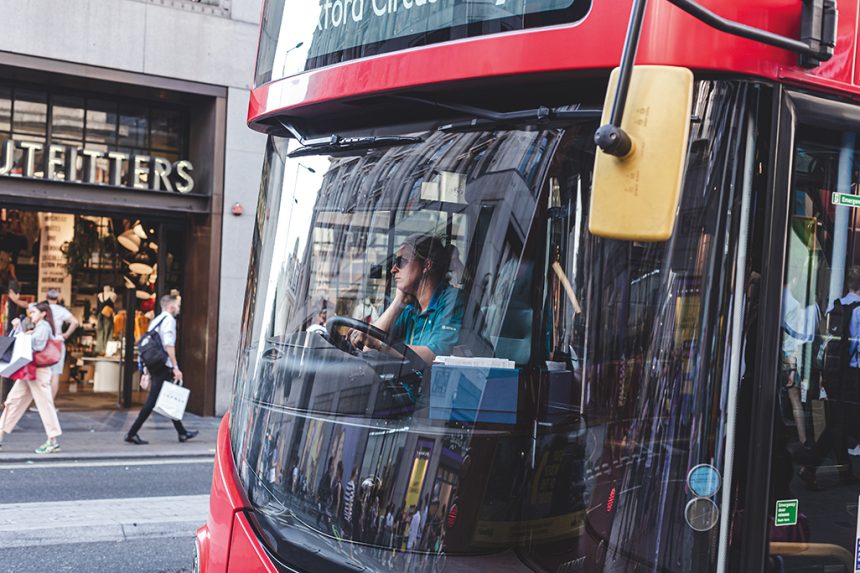For decades, like many aspects of bus design, the cab area has remained largely unchanged, and certainly no holistic review has been undertaken.
Women in Bus and Coach (WiBC) together with partners at Transport for London (TfL), TRL, Chapman Seating (and many more), has embarked on a project to deliver bus cabs that are fit for the future.
Over the past year, WiBC has held roadshows in London, Edinburgh, Glasgow, and Manchester, with more planned this year, including Dublin and Belfast, to gather views on current bus cab design: How it is used, the pain points, and how the cab could be improved.
This valuable feedback, together with input from the Women in Transport’s diversity and inclusivity group’s event in Leicester, is being used to inform the development of a better, more inclusive cab design.
Earlier this month, TfL published its vision for what a future inclusive and ergonomic bus cab design should consider. It has several key themes, the top three of which are:
- Comfort: To provide a comfortable cab designed for different body types to attract and retain more drivers
- Safety: To improve the safety of bus drivers by ensuring they are better protected in the event of a collision
- Wellbeing: To improve driver health and wellbeing.
Contributions have come from many operators and OEMs nationally across the industry, including over 100 bus drivers — both male and female — who participated in WiBC’s nationwide roadshow events. This firsthand experience is central to ensuring we are meeting the expectations of bus drivers for their workplace, something I am passionate that we achieve. Our bus drivers are at the heart of our industry and deserve to feel valued in their careers; this is one way we can show them our support.
I am excited to have engaged the Royal College of Art in the project, with its Intelligent Mobility MA students providing a completely fresh look at the drivers’ cab to explore new concepts and inspire creativity in bus cab design. I look forward to seeing their concepts and hope this will inspire them to consider a career in our industry, especially as both
Wrightbus and Alexander Dennis are offering paid internship opportunities for these students.
Upgrades to the bus cab environment will be mandated from 2027 through TfL’s Bus Safety Standard. This project, led by experienced Bus Safety Development Manager Rachel Birrell, is an extension of the highly successful first phase of the Standard which has resulted in a step-change in bus safety design. I am confident that this evidence-led approach will result in a standardised design adopted by all UK bus suppliers as we work with the International Standards Office to update its guidelines.
As with all our inclusivity work, collaboration and ideas sharing is critical to its success, so if you’d like to get involved in this campaign or share your ideas, please get in touch.




























